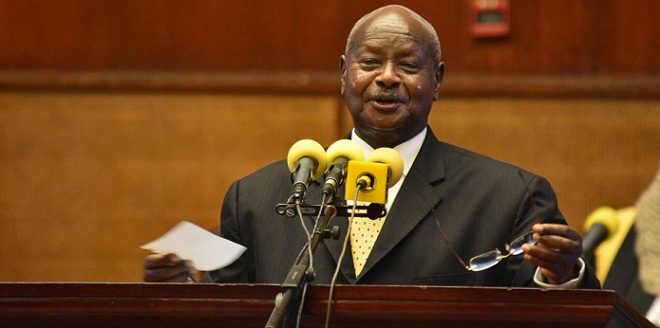
President Yoweri Museveni has said government will acquire the latest communication equipment to end what he termed rampant tax evasion and corruption within telecom companies in Uganda. He said estimates indicate that the country was losing up to $400m (sh1.2 trillion) in tax per year.
“There is still tax evasion among the telecom companies,” Museveni said. “The telephone companies have been evading tax. They make 3 million calls from outside, but declare only half of it and all the money is hidden.”
According to an analysis done last month by The Independent, telecoms have been doing what is called self-declaration to the sector regulator, Uganda Communications Commission (UCC) since they started operating.
As such, UCC and the Uganda Revenue Authority (URA) have been levying fees and taxes based on what the telecoms say they earned.
Speaking soon after the Uganda budget had been unveiled, Museveni said he needed help of the 10th parliament to secure the equipment and to weed out corruption.
“We have made an arrangement to buy high capacity equipment to trace all the calls that come in. It will be under a public private partnership (PPP) since we did not have all the money to buy it. This issue was brought to the last parliament but was not explained well.”
“I think there was also lobbying by the telecom companies” when the issue came to parliament, he said.
The technology, called an Intelligent Network Monitoring/verification System (INMS), will cost the Ugandan taxpayer between $20-30 million (Shs. 66 billion—99 billion) and is expected to, for the first time, enable the country monitor the volume and billing of voice and data traffic of telecoms.
VIDEO
RELATED ANALYSIS of Museveni telecoms decision (click here)
Here, below, is what Finance minister nominee Matia Kasaija, who read the budget, stated earlier about the IT sector in general.
Information Communication Technology
- Information and Telecommunications Technology (ICT) supports development of the financial services sector, telecommunications, public financial management and scientific research and innovation and e-Government. ICT contributes 2.5% of GDP (2015), employs approximately 1.3 million Ugandans and raised Shs. 484.4 billion in tax revenue collection in 2015. Telephone subscribers have increased from 19.5 million in 2013 to 23 million in 2015, while internet users grew from 8.5 million to 13 million in the same period. In further support for ICT development, land for construction of the ICT Park at Namanve Industrial Park has been secured and the feasibility study completed. In addition, larger land space has been acquired in Entebbe where a mega ICT park will be set up starting next financial year.
- Starting with next financial year, the sector will improve access to high speed broadband services from 512 Kilobytes per second to 4 Megabytes per second and 30Mbps for rural and urban households respectively. This will support business productivity and facilitate communication. The National Backbone Infrastructure (NBI) will be extended to cover West Nile and Karamoja Regions under the Regional Communication Infrastructure Project, with support from the World Bank. The Backbone will also be extended to neighbouring countries (Kenya via Malaba and Busia, Tanzania via Mutukula, Rwanda via Katuna, South Sudan via Nimule and Democratic Republic of Congo via Mpondwe to further improve regional interconnectivity.
CLICK HERE TO READ FULL BUDGET SPEECH
Here’s the breakdown of Uganda’s Sh26 trillion budget (click here)
 The Independent Uganda: You get the Truth we Pay the Price
The Independent Uganda: You get the Truth we Pay the Price





